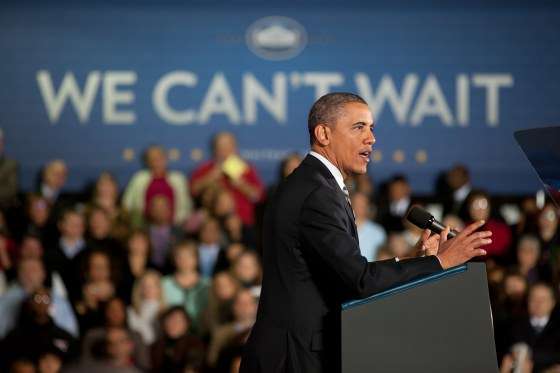ObamaCare's Unsustainable Revenue Raisers

About half of ObamaCare's first-decade cost was supposed to be funded via cuts to Medicare and fees on specific segments of the health industry. Republicans responded by complaining that those cuts would decimate care for seniors, but the real problem was that those cuts, along with some of the other revenue raisers built into the law, were never likely to occur.
ObamaCare's budget, and the deficit reduction it was alleged to achieve, was in many ways an exercise in wishful thinking: If Congress and Medicare's administrators allowed the cuts and fees to go through as planned, and if the spending provisions stayed on target, then the law might raise enough revenue to break even, or possibly reduce the deficit somewhat. Well, sure. If. But the smart money was always on many of the cuts and fees and other revenue raisers being wiped from the books just before or shortly after they went into effect. It wasn't that the various revenue raisers built into the bill were impossible, exactly; it was that they weren't politically sustainable.
Three years after the law passed, we're starting to see fairly strong indications that many of ObamaCare's revenue raisers won't pan out. Just yesterday, for example, the Department of Health and Human Services bowed to pressure from the insurance industry and reversed its plan to cut payments to privately run Medicare Advantage (MA) plans. Instead of taking a 2.2 percent cut, those plans will instead be given a 3 percent increase.
Nor is this the first time that Medicare Advantage has escaped planned cuts. Prior to the election, the administration delayed a series of MA cuts built into the health care overhaul, replacing it with an unusual, and extremely expensive, pilot program that it said would help test the effect of quality bonuses. The problem was that the pilot program extended to every MA provider in the nation, and rewarded providers that didn't score high on quality. It was a pretty nakedly transparent attempt to avoid some of the cuts; the Government Accountability Office stated flatly that the pilot program couldn't possibly test the effect of quality bonuses as the administration said it would, and called for the administration to end the pilot.
What makes this even more revealing is that these are cuts that ought to be relatively easy to achieve: The administration, along with many Democrats, has long argued that Medicare Advantage providers are overpaid. Yet we've now seen it backtrack on multiple occasions.
ObamaCare's Medicare Advantage cuts aren't the only revenue raisers that didn't survive. A tax reporting provision that was supposed to raise $17 billion but would have resulted in big paperwork headaches for small businesses was repealed.* So was the CLASS Act, a long-term care initiative that was responsible for about $70 billion of the deficit reduction that was projected to occur in ObamaCare's first 10 years.
More recently, a bipartisan majority in the Senate voted to repeal the law's medical device tax. That vote was nonbinding, and the House hasn't followed suit. But most observers I've spoken with think that the device tax isn't long for this world.
The critics who warned that the law's cuts and revenue projections might not be sustainable are looking increasingly prescient. I suspect that what we're seeing now is only the beginning. Health insurers will continue to push to repeal the fee on their industry, and if implementation of the law coincides with higher premiums for a large enough number of individual, they may well have some success. In 2018, the "Cadillac tax"—a tax on expensive health insurance plans—will kick in. Union lobbying already delayed the start date for that provision by several years, and it's likely that they will renew their opposition in a few years.
The revenue mechanisms built into the law are starting to fall apart. The spending, of course, remains.
*Update - September 2013: I should note that while this revenue provision was repealed, it was also paid for by clawing back some of Obamacare's insurance subsidies, as I originally noted here.


Show Comments (25)